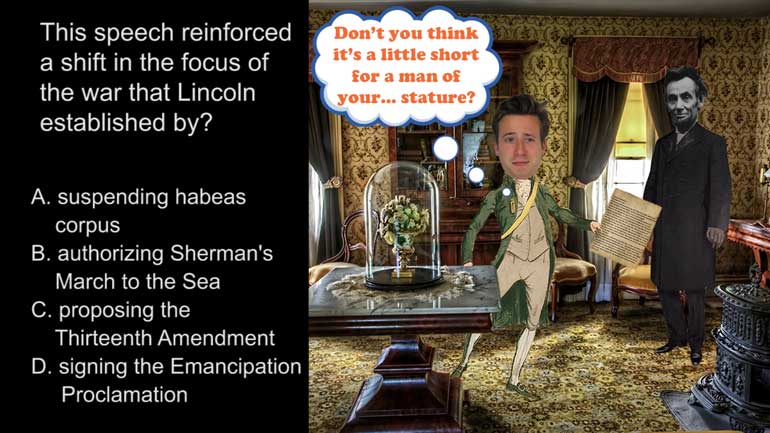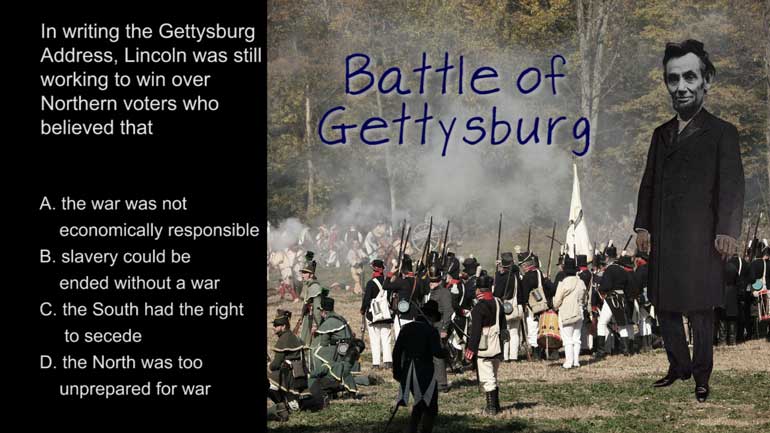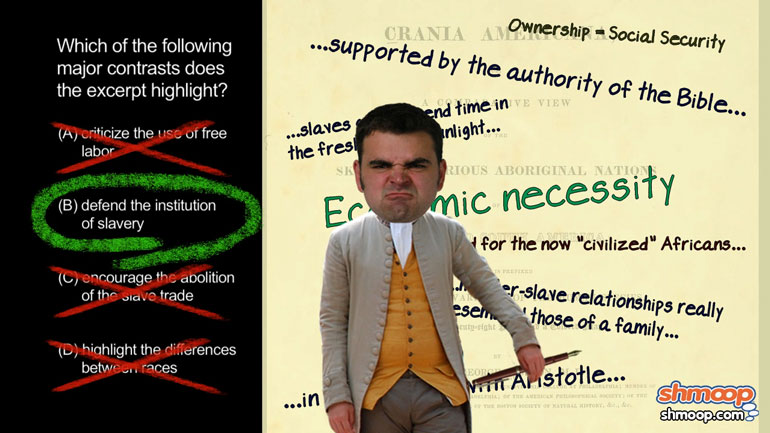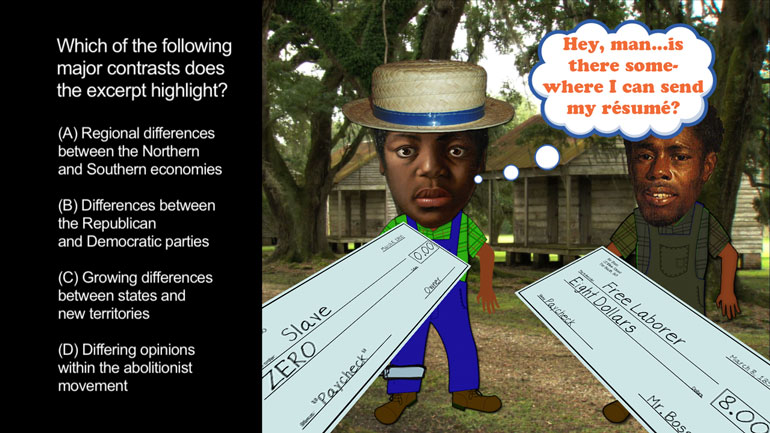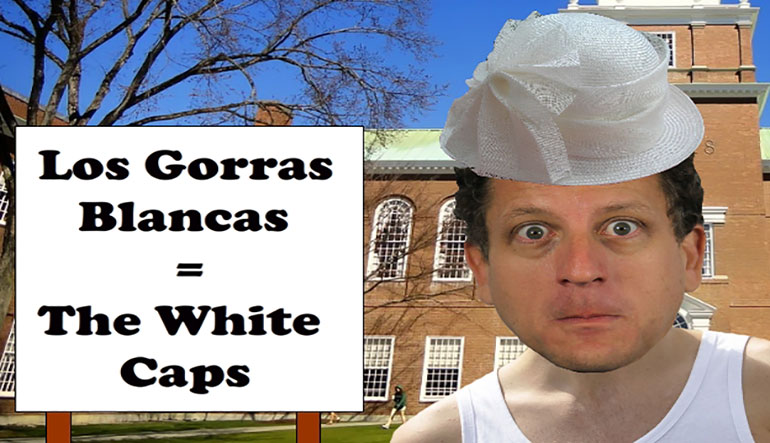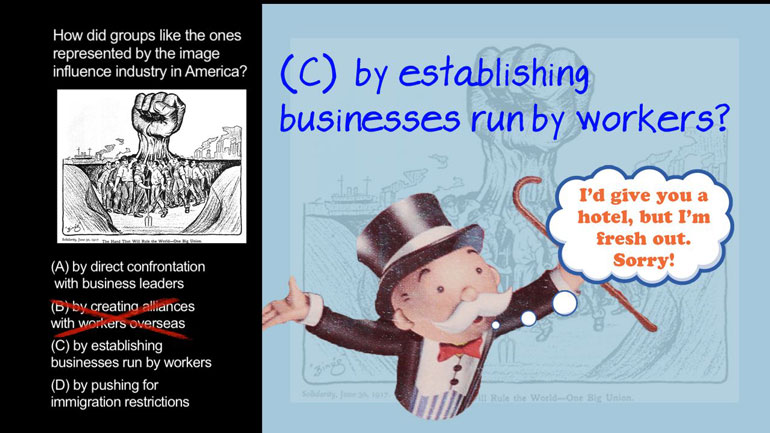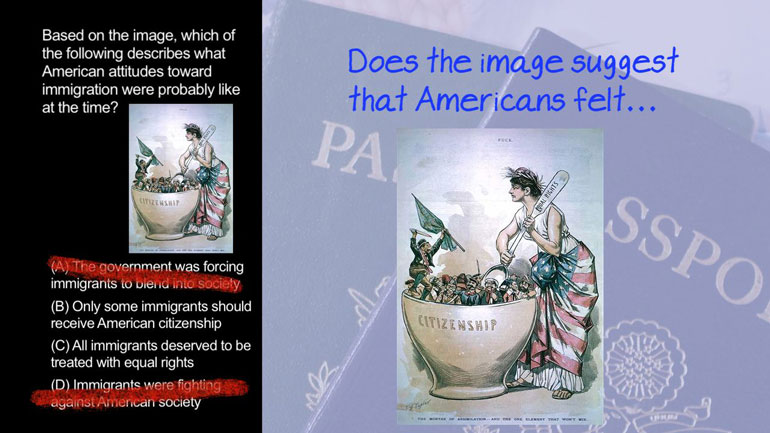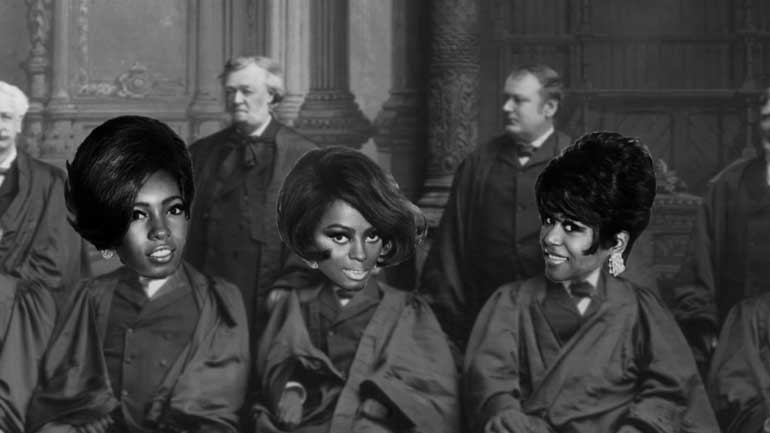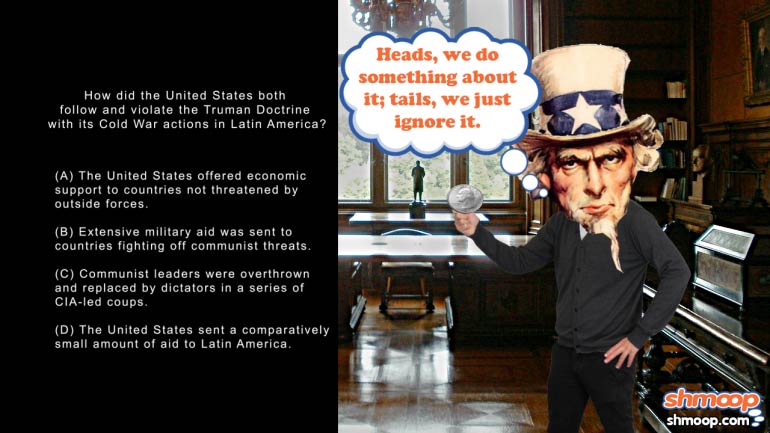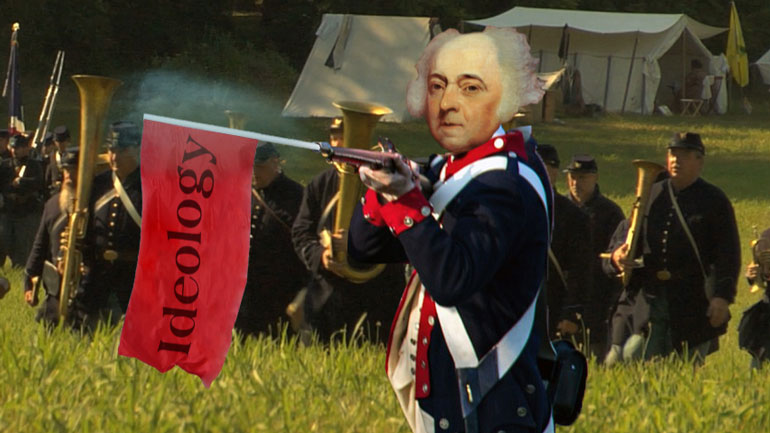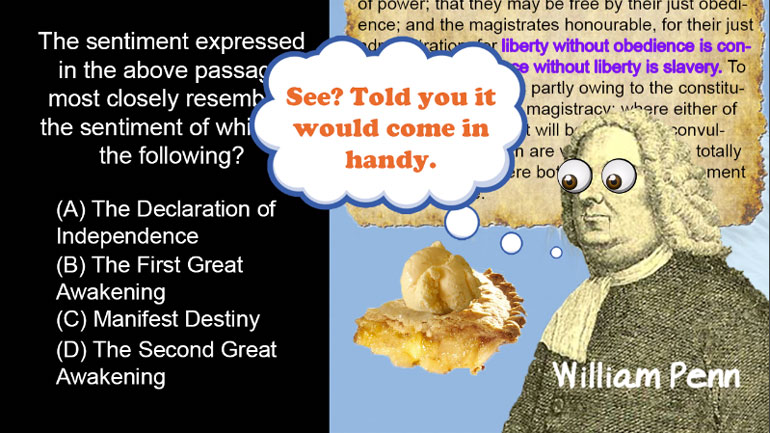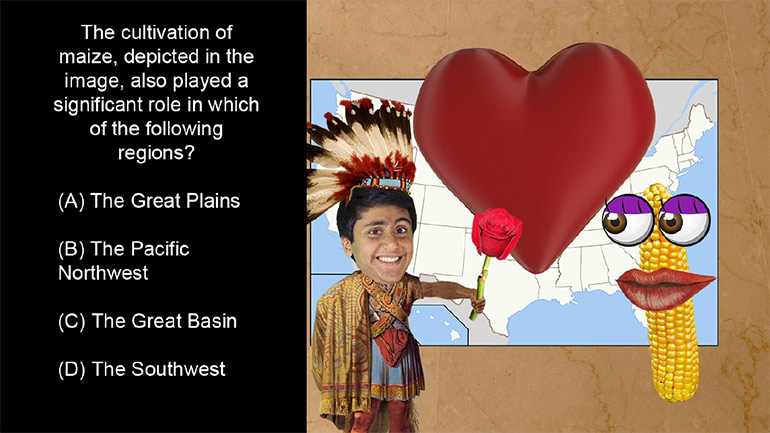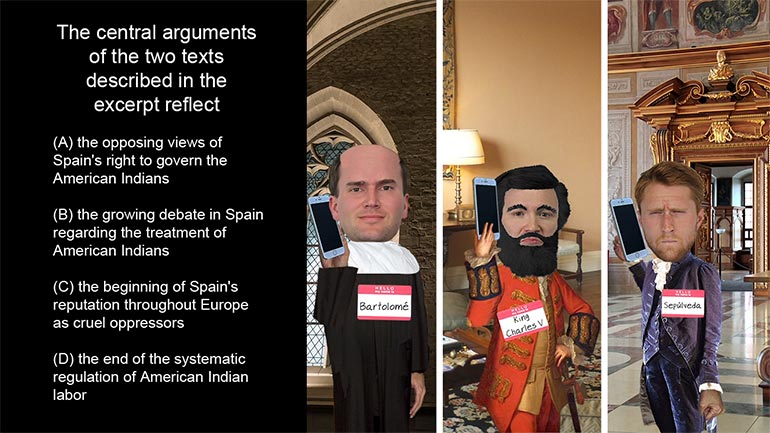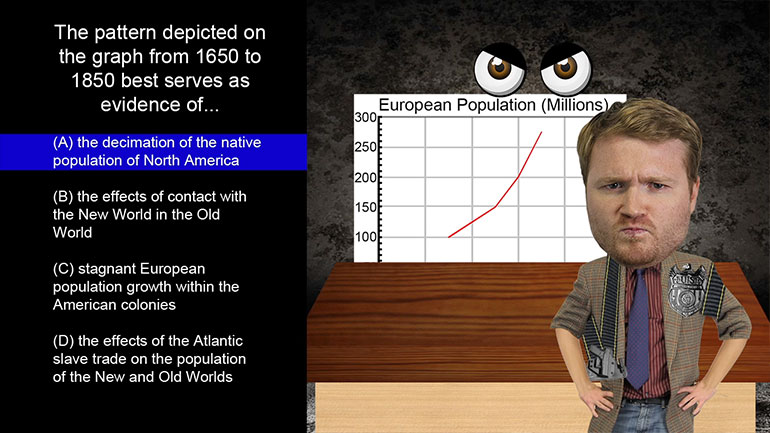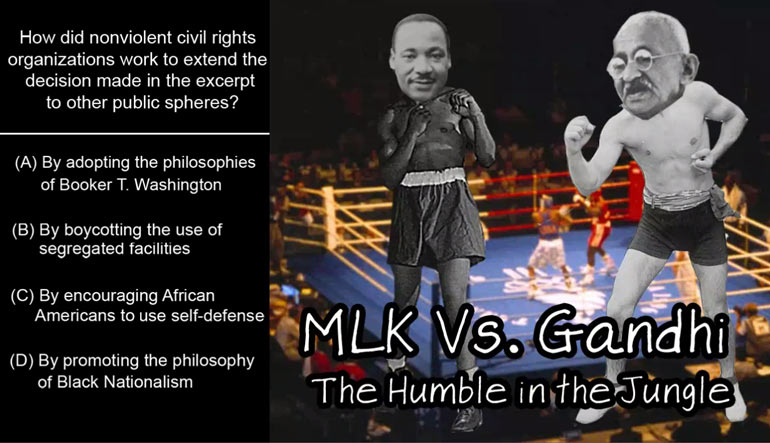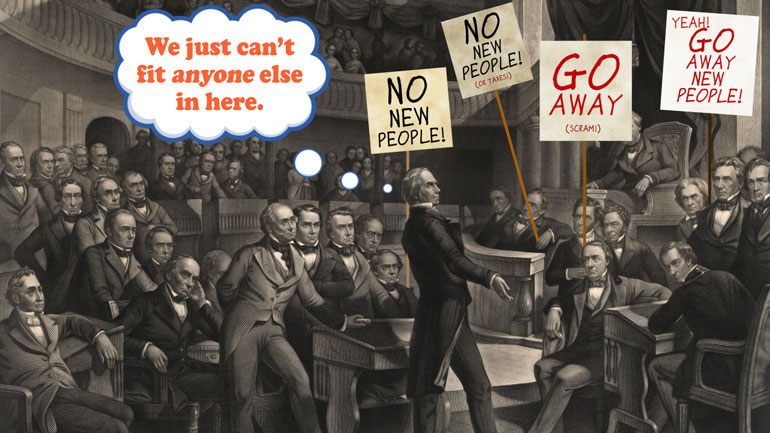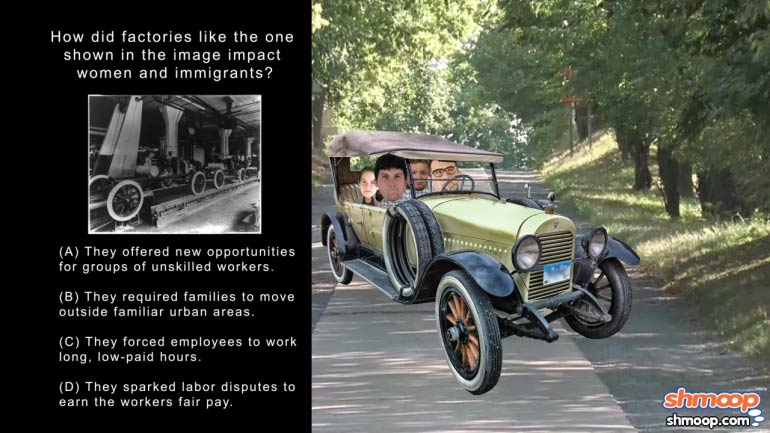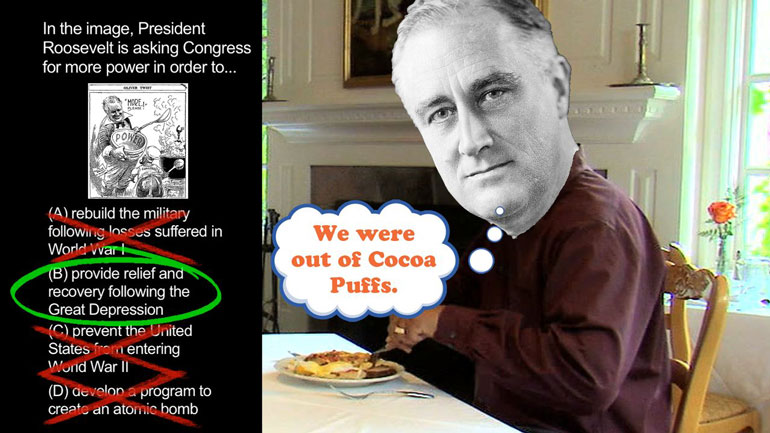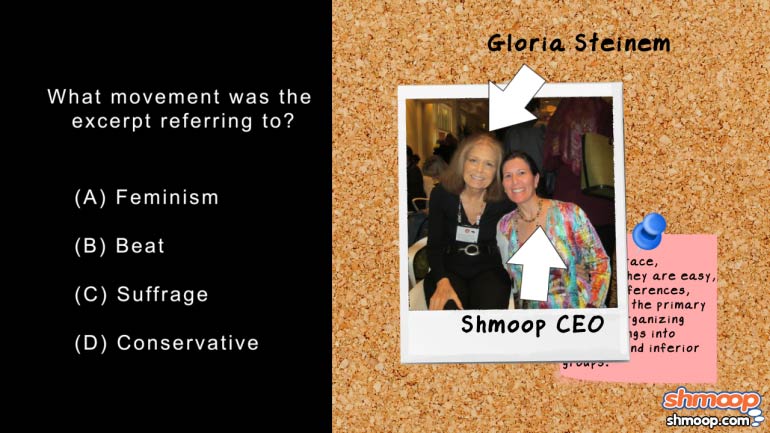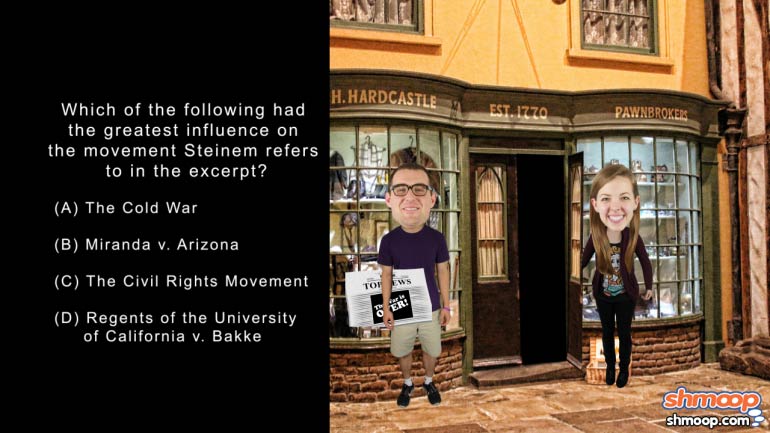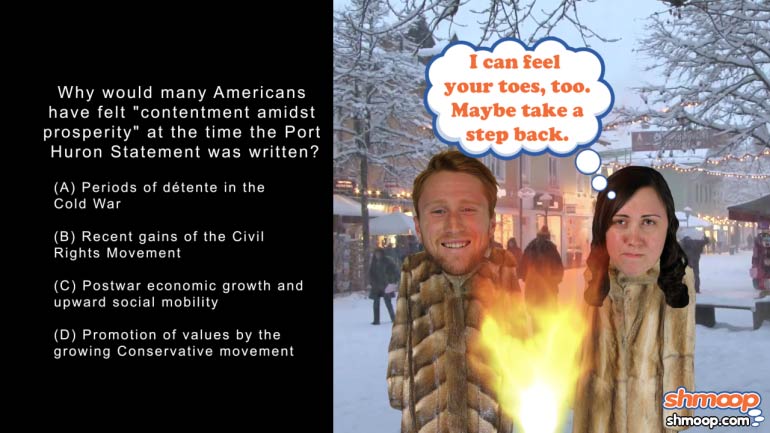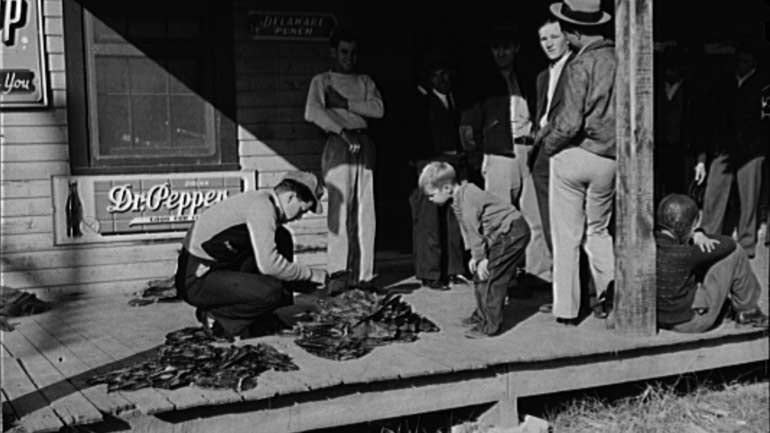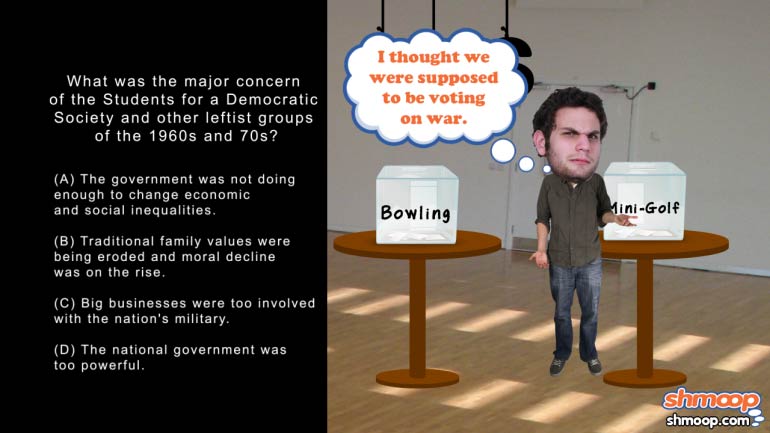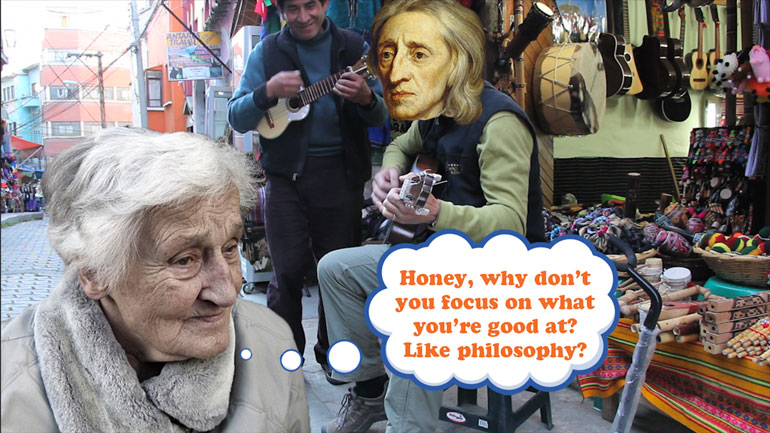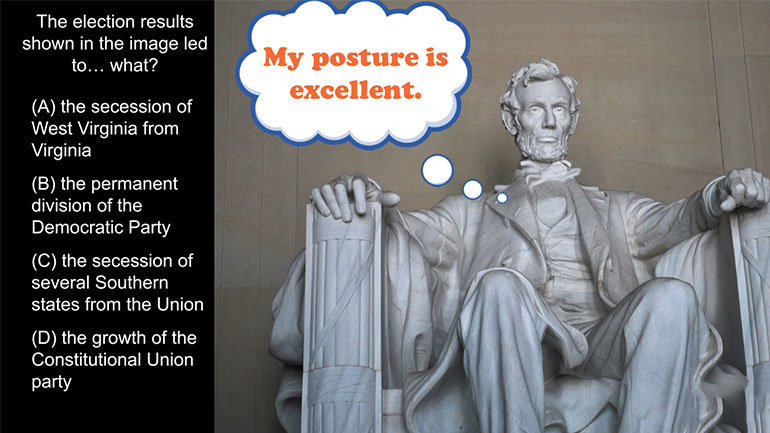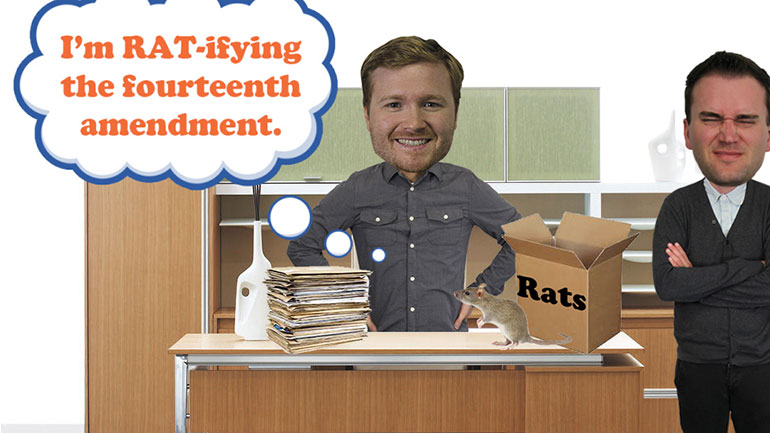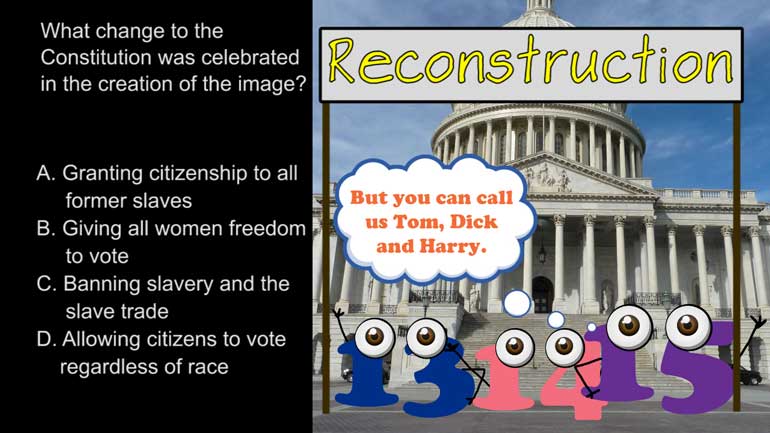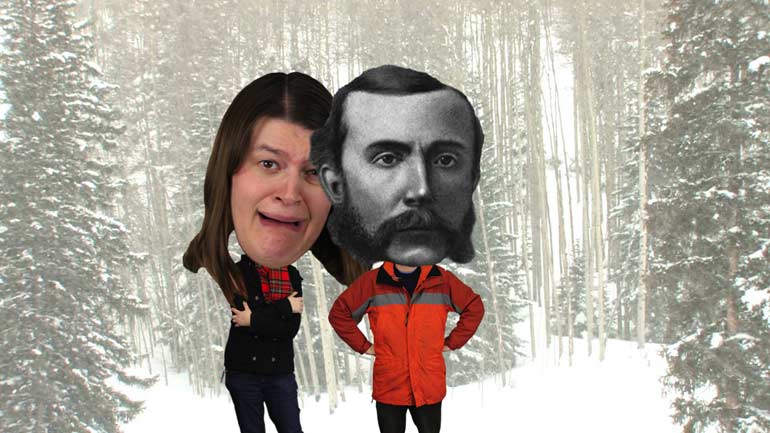ShmoopTube
Where Monty Python meets your 10th grade teacher.
Search Thousands of Shmoop Videos
AP U.S. History Videos 294 videos
AP U.S. History Exam 2.45. The journey shown on the map was an example of...what?
AP U.S. History Exam 2.26. This speech reinforced a shift in the focus of the war that Lincoln established by...what?
What did the Spanish messengers bring with them to North America? Hint: you probably wouldn't be thrilled to get this for your next birthday.
AP U.S. History Exam 2.47 165 Views
Share It!
Description:
AP U.S. History Exam 2.47. What movement was the excerpt referring to?
Transcript
- 00:00
[ musical flourish ]
- 00:03
And here's your Shmoop du jour, brought to you by the Beat movement,
- 00:07
a relentless devotion to rhythm.
- 00:10
Yeah, hey. Sing it, Gloria.
- 00:11
All right, check out this excerpt. Here we go.
Full Transcript
- 00:13
"This is no simple reform. It really is a revolution.
- 00:17
Sex and race, because they are easy, visible differences,
- 00:20
have been the primary ways of organizing human beings
- 00:23
into superior and inferior groups,
- 00:25
and into the cheap labor on which this system still depends.
- 00:29
We are talking about a society in which there will be no roles
- 00:31
other than those chosen, or those earned.
- 00:34
We are really talking about humanism."
- 00:36
Gloria Steinem, right there. All right.
- 00:39
And the question:
- 00:40
What movement was the excerpt referring to?
- 00:43
And here are the potential answers.
- 00:45
[ mumbles ]
- 00:47
All right, well in the excerpt, Gloria Steinem -
- 00:49
this woman right here with our CEO, yep, that's her -
- 00:52
writes that "sex and race, because they are easy,
- 00:55
visible differences,
- 00:56
have been the primary ways of organizing
- 00:59
human beings into superior and inferior groups."
- 01:02
So let's see which answer describes the movement that united
- 01:05
these differences into a moving force for change.
- 01:09
Does this excerpt refer to B -
- 01:11
Beat movement?
- 01:12
Hmm. Well, the Beat movement dealt primarily with
- 01:15
the culture surrounding a generation of writers in the 1950s.
- 01:19
Uh, so, think more poetry than politics.
- 01:22
All right, is Gloria Steinem writing about the C - suffrage movement?
- 01:25
Well, not quite. The suffrage movement succeeded in
- 01:28
gaining women the right to vote
- 01:30
50 years earlier,
- 01:32
so that's out of C.
- 01:33
Could Steinem be describing the D - conservative movement?
- 01:37
Well, hmm. Activists like Steinem were fighting against conservatives,
- 01:41
which often opposed granting equal constitutional rights
- 01:45
to women. So D is dead in the water.
- 01:47
And that means Steinem was speaking in support of A -
- 01:50
the feminist movement.
- 01:52
Gloria Steinem was well known for her leadership during the feminist movement.
- 01:55
And during the 1970s and 80s she fought hard
- 01:58
for the level of equality described in the excerpt.
- 02:01
So A is the right answer.
- 02:02
The feminist movement made a point of challenging the nation's
- 02:05
founding fathers, hoping to prove that it wasn't just men who were
- 02:08
created equal.
- 02:10
[ woo! ]
Related Videos
Ever heard of a "living document"? They eat and breathe just like the rest of us! They even walk around on their own two legs. Okay, fine—maybe t...
If the Puritans had gotten their way, religion would play a much larger role in lawmaking these days. Want to know more? Watch the video for all th...
What happened between the creation of the Articles of Confederation and the ratification of the current U.S. Constitution? This video analyzes the...
The Modernists thought the world had a lot of problems, and they were intent on fixing them—or at least talking about fixing them. Unfortunately,...
This video explains Federalism and the quest for a fair balance between state and national power. It covers the progression and compromises of Fede...

